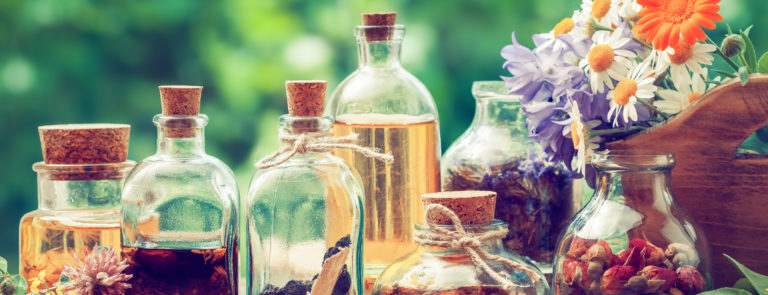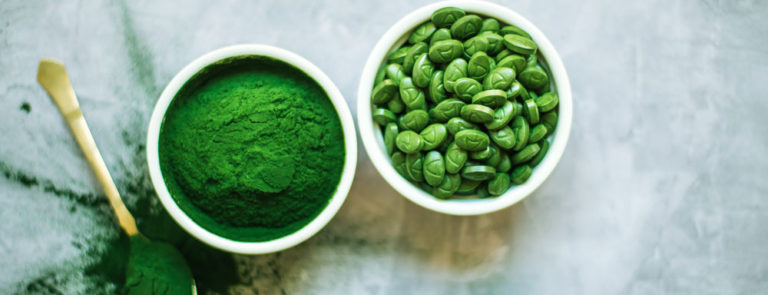10% off £35
Code:SAVE
The 7 most popular essential oils

Why are these the 7 most searched-for essential oils in the UK? Find out more about these popular essential oils and what they can do for you.
With their use dating to 18,000BC, our relationship with essential oils goes back a long way.1
Today, with more and more people seeking natural solutions to everything from anxiety, skin blemishes to household cleaning, essential oils are more popular than ever.
With over 9m posts on Instagram using the hashtag #essentialoils, it’s fair to say they are part of the cultural zeitgeist.2
The internet is a great resource for all things essential oil-related, with people keen to discover the potential benefits. As a result, online searches for essential oils have skyrocketed in the past decade in line with the widespread interest in natural wellness.3
There are over 90 different types of essential oils,4 but some stand out as firm favourites among UK oil fans.
Interestingly, most of the top 6 have relaxing, calming or mood-boosting properties. With 1 in 6 UK adults experiencing a common mental disorder such as anxiety and depression, it’s no wonder that demand for a natural remedy is so high.
Here are the UK’s most searched-for essential oils and a little about what they do.
Lavender
With an herbal yet floral scent like an English country garden, lavender essential oil is the most-searched for essential oil in the UK. It’s no new fad – lavender has been used since at least medieval times in perfumes and soaps.5 But why is it so popular today, and what is it good for?It can help alleviate feelings of anxiety
Renowned for its calming properties, lavender essential oil is used by thousands of people in the UK to help ease feelings of anxiety. From a sensory perspective, inhaling lavender scent feels calming. However, lavender’s anti-anxiety effect is also backed up by science. Studies show that using lavender can have a calming effect and improve people’s low and anxious mood.6 7 Lavender essential oil used in aromatherapy and massage can also hold real benefits for anxiety. In one study, patients in an intensive care hospital unit were randomly allocated holistic therapies including aromatherapy using lavender essential oil. The patients who received aromatherapy reported significantly greater improvement in their mood and anxiety levels compared to those receiving other holistic therapies.8 For massage, a few drops can be added to a carrier oil such as almond oil or jojoba oil.It can support better sleep
With the demands of modern life and the ubiquity of technology in most UK bedrooms, it’s no surprise that so many of us are looking for natural ways to help tackle sleeplessness and insomnia. Several studies have found that inhaling lavender oil before bed can improve the quality of sleep in various groups, including young people and post-partum women.9 10Peppermint
Sharp and tingly, peppermint essential oil is a breath of fresh air. It’s also the second most sought-after essential oil in the UK. But why?It’s invigorating
Peppermint oil is inhaled by many people as a way to help ease mental fatigue. A few drops on a cotton or muslin handkerchief is enough to give you a little pep during those times when you feel yourself flagging. Lots of anecdotal evidence points towards peppermint oil being able to help with feelings of ‘brain fog’.11 12 Use peppermint essential oil diluted with a carrier oil in a diffuser, room spray or facial steam for an invigorating, cooling sensation.It can help tired muscles
Whether it’s from a day slouching over a spreadsheet screen or from hard work at the gym, tired muscles might feel the benefit from a dose of peppermint oil. Although it hasn’t been scientifically proven to work, some people find the menthol in peppermint oil useful for muscle fatigue when applied topically in a cream or ointment. A few drops of peppermint oil diluted with carrier oil in the bathtub will feel great on tired muscles during a long soak.It fights bad breath
It’s no coincidence that toothpaste and mouthwash have the smell and taste of peppermint. Peppermint oil’s antibacterial qualities kill the bacteria inside the mouth that causes bad breath. In one study of people experiencing halitosis (bad breath), a peppermint mouth rinse significantly reduced the cases of halitosis among the participants.13Lemon
Lemon essential oil has an unmistakeable tangy and fruity scent. But why is it being searched for online thousands of times each month?It can help beat acne
Much like tea tree essential oil, lemon oil is an antibacterial, therefore can be effective in helping to tackle acne by killing those pimple-causing bacteria on the surface of your skin.14 If you find the scent of lemon oil overwhelming, mix in a few drops of rosemary essential oil to dilute the sharp citrussy scent, followed by a carrier oil. Citrus oils can cause sensitivity to the sun so should be applied diluted with a carrier oil before being applied to the skin and an SPF should be used afterwards to avoid UVA skin damage.15It can help beat nausea
A 2014 found that lemon oil can be effective in reducing nausea and vomiting during pregnancy.16Diffusing lemon oil in your home using a humidifier, adding it to hand cream, room spray or simply inhaling straight from the bottle could all help stave off waves of nausea.Ylang ylang
This beautifully-scented flower hails from the Asian and Australian continents and is one of the top trending essential oils in the UK. So, what is the appeal of ylang ylang, and what are its benefits?It’s relaxing
Ylang ylang’s sweet and heavy scent is highly sought-after as an aromatherapy ingredient and addition to fragrances. It’s also calming and could be a useful essential oil to have in your toolkit against anxiety. In one study of 40 participants, ylang ylang essential oil made people feel more calm and relaxed compared to a placebo.17It could help reduce blood pressure through its calming effect
Another study which involved participants inhaling ylang ylang essential oil also found significant calming effects. The people participating in the study displayed significant decreases in blood pressure and pulse rate after inhaling ylang ylang.18Frankincense
Prized by ancient civilisations, frankincense is still popular today with people looking for an earthy, intense aroma.It relaxes you
Frankincense essential oil is another oil renowned for its soothing, comforting properties.It might help ease your senses
Based on traditional use, frankincense could have a beneficial effect on the respiratory system. When used in steam inhalations, baths and for massage, frankincense resin can promote the feeling of clearer airways.Neroli
Neroli essential oil is a close relative to orange blossom essential oil. They both come from the same bitter orange tree. But why is it the sixth most popular essential oil in the UK?It nourishes the skin
Neroli oil is used as a base for many skin and body care products. It’s been shown to reduce the severity of some skin concerns and improve the suppleness of skin as well as promote hair growth.19 There has even been a scientific link established between bergamot oil and an increase in collagen production in the skin, although the increase noted was small and more research is needed.20It can help reduce feelings of stress
Inhaling neroli oil has been linked with a calming sensation. A 2012 study in Korea found that both cortisol (a key stress hormone) and blood pressure dropped after inhaling an aromatherapy blend of lavender, ylang ylang, marjoram and neroli essential oils.21Bergamot
Fruity and a little spicy, you may be familiar with bergamot as the subtle flavour in Earl Grey tea. Hailing originally from South East Asia and now grown in Italy, bergamot essential oil is also much-loved among UK consumers. Here’s why.It promotes emotional wellbeing
Studies have shown a positive effect on mental wellbeing after aromatherapy with bergamot essential oil.22 One study linked the inhalation of bergamot oil with positive mental states such as feeling inspired, proud and strong.23A word of caution
Essential oils, while natural, are highly concentrated bioactive substances and can cause unwanted side effects if used improperly, so always read the instructions on the packaging before use. Some oils can be used in small amounts directly on the skin however it is important to dilute the essential oils in a suitable carrier oil to prevent adverse side effects. Good choices for carrier oils include castor oil, wheatgerm oil, sweet almond oil, jojoba oil, coconut oil and olive oil. If you’re pregnant or breastfeeding, consult your GP or health visitor before using essential oils. For tips on how to use your essential oils in everything from homemade skincare to cleaning your home, check out 9 things essential oils are great for. Shop Aromatherapy Last updated: 31 July 2020 Sources 1 The Aromatherapy Handbook: The Secret Healing Power Of Essential Oils Daniele Ryman (1984) Random House 2 https://www.instagram.com/explore/tags/essentialoils/?hl=en 3 https://www.grandviewresearch.com/industry-analysis/essential-oils-market 4 https://www.ncbi.nlm.nih.gov/pmc/articles/PMC5435909/ 5 https://www.ncbi.nlm.nih.gov/pmc/articles/PMC3612440/ 6 https://pubmed.ncbi.nlm.nih.gov/26718792/ 7 https://www.ncbi.nlm.nih.gov/pmc/articles/PMC3612440/ 8 https://pubmed.ncbi.nlm.nih.gov/7897075/ 9 https://pubmed.ncbi.nlm.nih.gov/16298774/ 10 https://www.ncbi.nlm.nih.gov/pmc/articles/PMC4443384/ 11 https://www.mindbodygreen.com/0-25695/5-essential-oils-to-banish-brain-fog-once-and-for-all.html 12 https://www.alzheimers.net/10-10-14-essential-oils-dementia 13 https://www.ncbi.nlm.nih.gov/pmc/articles/PMC3894100/ 14 https://www.ncbi.nlm.nih.gov/pmc/articles/PMC5435909/ 15 https://www.sciencedirect.com/science/article/pii/S2221169115001033 16 https://www.ncbi.nlm.nih.gov/pmc/articles/PMC4005434/ 17 https://pubmed.ncbi.nlm.nih.gov/16807875/ 18 https://pubmed.ncbi.nlm.nih.gov/15303255/ 19 https://www.ncbi.nlm.nih.gov/pmc/articles/PMC6392855/ 20 https://pubmed.ncbi.nlm.nih.gov/23259002/ 21 https://pubmed.ncbi.nlm.nih.gov/25824404/ 22 https://www.ncbi.nlm.nih.gov/pmc/articles/PMC5434918/ 23 As aboveRelated Articles
Shop by wellness goal
Sign up for exclusive offers
Plus, get expert advice to support your health & wellness straight to your inbox when you sign up to Holland & Barrett emails.
Read our
privacy policy














